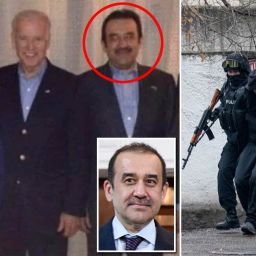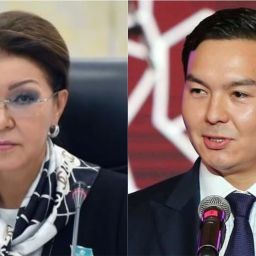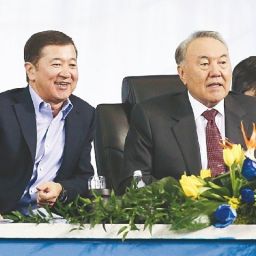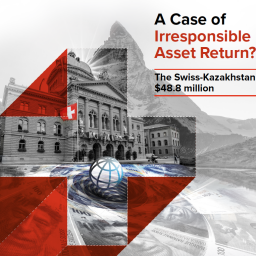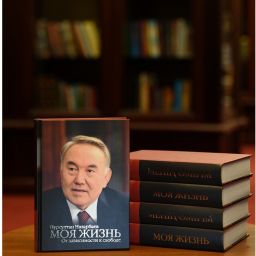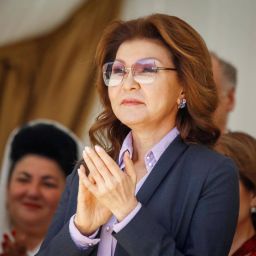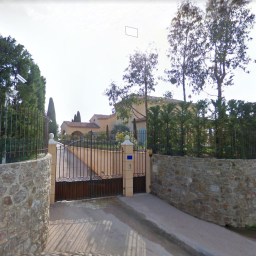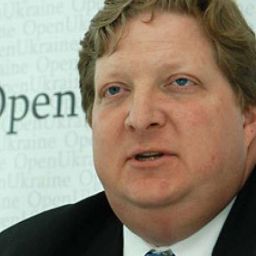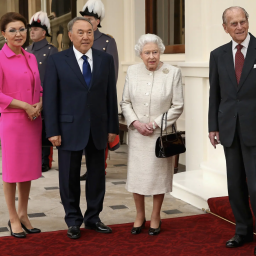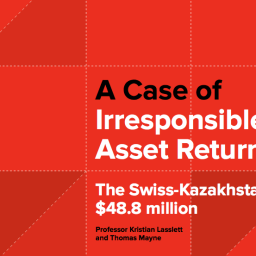On September 19th, Radio Free Europe published an item titled Nazarbaev’s Nephew Goes On Trial In Astana. The Nazarbayev in question is Kazakhstan’s former President Nursultan Nazarbayev (pictured), and my interest picked up when I realised that some of the charges of fraud and embezzlement related to Kazakhtelecom. However, I wasn’t prepared for the sheer volume of information I would find. This article just scratches the surface.
The Press Report
Radio Free Europe reports that Nazarbayev’s nephew, Kairat Satybaldy (or Quirt Satybaldyuly), was arrested in early March while trying to board a plane heading to Turkey; his trial opened in a district court in Astana on September 19th.
In June, President Qasym-Zhomart Toqaev said he had created a commission to “return cash illegally taken out of Kazakhstan” by “a narrow circle of people who had illegally taken over the larger portion of the country’s wealth.” And then in August, Kazakhstan’s Anti-Corruption Agency said that Satybaldy and four other unnamed individuals were suspected of embezzling an unspecified amount of money from the Kazakhtelecom and Transport Service Center companies. The agency also said that USD500mn had been returned to the state treasury and 29 percent of Kazakhtelecom’s shares (market capitalisation USD652mn), which had been controlled by Satybaldy, were put back under state control.
The news article didn’t provide details of the frauds, but if President Toqaev’s commission was able to recover USD690mn, I definitely wanted to know more. I didn’t have to wait long because, on September 26th, an update told us that Satybaldy pleaded guilty to all charges and has been sentenced to 6 years imprisonment.
Background
Kazakhtelecom is Kazakhstan’s largest telco and is 51% owned by the state. It has a monopoly on landline contracts and it holds stakes in most of the country’s mobile phone operators. Kairat Satybaldy is the nephew of Nursultan Nazarbaev, who was Prime Minister of the Kazakh Soviet Socialist Republic from 1984, and then served as Kazakhstan’s first President from independence in 1991 to his resignation in 2019. According to Forbes:
Often described as the son Nazarbayev never had, Satybaldy is a leading figure in the ruling Nur Otan Party, and a member of the country’s business and political elite.
Online sources show that Satybaldy worked in the National Security Service from 1991 to 1998. After this he performed numerous roles, including deputy mayor of Astana, Vice-President of the national company Kazakh Oil, Vice-President of Kazakhstan Railways and Secretary of the Nur Otan Party. In May 2016, The Independent noted that:
Another former bureaucrat, former Secretary General of the ruling Nur Otan party, Kairat Satybaldy, left government to become chairman of Alatau Capital Invest, which teamed up with Baring Vostok to put money into several projects in the banking sector.
And in November 2016, it was announced that Alatau Capital Invest had acquired 3.4% of the shares of Kazakhtelecom – so there’s the connection. According to Forbes in 2018, Kairat Satybaldy owned assets of USD163mn and was among the 50 richest businessmen in Kazakhstan.
Unpeeling the Onion
As a starting point, I tried to find the source of Satybaldy’s Kazakhtelecom shares. Media reports in April 2022 stated that, following his arrest, Satybaldy’s company Skyline Investment Company transferred more than 2,600,000 Kazakhtelecom shares to state ownership, and Alatau Capital Invest transferred a further 400,000. Previous media coverage reports that the shares held by Skyline Investment had been obtained from another of the richest businessmen in Kazakhstan, Alexander Klebanov.
According to the Astana Times, in July 2016, Klebanov held the Kazakhtelecom shares in his company Sobrio Ltd, having transferred them from his Netherlands based companies Bodam B.V. and Deran Services B.V. Forbes told a slightly different story:
Recall that BODAM BV and DERAN SERVICES BV are owned by Aigul Nuriyeva (also Nurieva) , who ranks 8th in the Forbes Kazakstan ranking of the 50 richest businessmen in Kazakhstan – 2016
A possible explanation was supplied in March 2018 by kz.expert, which says that Klebanov acquired Bodam and Deran Services from Aigul Nuriyeva. It also claims to have inside information that Klebanov is acting as a front for the President’s oldest daughter, Dariga Nazarbaeva, who was an MP in the state parliament at the time.
A 2008 US Government cable that was leaked to Wikileaks provides useful insight about Aigul Nuriyeva. The cable was prompted by a Wall Street Journal article which is entitled “Kazakhstan Corruption: Exile Alleges New Details,” and relies heavily on an interview with, and documents provided, by ex-Nazarbayev son-in-law Rakhat Aliyev, the sole named source. He claimed that Nazarbayev holds vast hidden ownership stakes in various Kazakhstani industries, takes illicit commissions from firms doing large-scale business in Kazakhstan, and controls a large network of off-shore bank accounts. With regard to Aigul Nuriyeva, the cable states:
Immediately after the article was published on July 22, Prime Minister Masimov called in the Ambassador for a tete-a-tete to discuss it just prior to Masimov’s scheduled meeting with visiting Special Envoy for Eurasian Energy Issues Boyden Gray. Masimov noted that the article claims that he is a co-owner of a Singapore-based company together with a Kazakhstani banker named Aigul Nuriyeva who, according to the article, helps manage the Nazarbayev family finances. Masimov explained to the Ambassador that his share in this company is not a secret, as the asset is listed on his financial disclosure forms.
This suggests Aigul Nuriyeva was in partnership with the Prime Minister whilst managing the President’s family assets. So when Nuriyeva sells Kazakhtelecom shares to Klebanov, who is the real buyer and who is the real seller?
Bad Connections for Telia and Tele2
Kazakhtelecom’s history became even muddier when I came across a fascinating piece of work by Thomas Mayne, Leila N. Seiitbek, Fatima Kanji and Eryn K. Schornick called “Bad Connection: Corruption in Kazakh Telecoms”. Bad Connection looked at the history of Kazakhtelecom’s relationships with Swedish companies Telia Company AB in Kcell and Tele2 AB in Tele2.
Kazakhstan’s telecoms industry is dominated by key figures from the political elite. It is highly likely that such individuals have abused their positions of state power to make money in the private telecoms sector, including through the deals highlighted in this report.
It goes on to draw parallels between the circumstances of the Kazakhstan deals and those done in Uzbekistan, where, having admitted corruption, Telia reached an agreement with the US Department of Justice and paid USD 965mn in penalties. Relating to Kazakhstan, Bad Connection says:
Telia bought a 49% stake in Kcell from Kazakhtelecom for USD1.52bn in 2012, which was majority owned by the Kazakh government but had over 20% of the company owned by opaque companies with possible ties to Kazakh government officials. A few months later, a share offering valued the company at up to 75% less than the price Telia bought for its shares. In 2018, Telia sold its 75% stake in Kcell for USD446mn — USD1bn less than what it paid for just 49% of the company six years ago.
They went on to observe:
In comparison, Telia’s rival in Kazakhstan Tele2 AB made efforts to mitigate the risk of dealing with Nuriyeva by publishing reports on the due diligence it had performed in Kazakhstan, and getting Nuriyeva to sign various documents confirming she was the ultimate owner and not working on behalf of any Kazakh politicians.
In fairness to Telia, it had commissioned international law firm Norton Rose Fulbright to conduct an external review covering Nepal, Kazakhstan, Azerbaijan, Tajikistan, and Georgia. Reuters reports Chairwoman Maria Ehrling telling Telia’s April 2014 AGM:
The board can unfortunately say that several transactions and practices have not been handled in accordance with good business practice,” Ehrling told shareholders at the company’s annual general meeting. “It cannot be excluded that certain actions have been criminal.
Independent news organisation eurasianet reports Ehrling’s comments on areas of concern including:
“substantial payments to advisors and intermediaries for, among other things, lobbying activities; lack of control of business partners; and inadequate handling of warning signs.”
“One area singled out is the inadequate governance of the Eurasian operations,” Ehrling said. Risk assessment had been inadequate “from an ethical and legal perspective,” she added. TeliaSonera had failed to ensure “sufficient expertise and knowledge to act appropriately in the very difficult and complex business environment in Eurasia, where political risk is considered to be high and corruption is widespread,”
It’s our opinion that we are as transparent as possible with regards to the circumstances and also by continuously handing over information to the Swedish prosecutor,” she said, and it was up to the courts to assess the legality of any transactions.
By October 2014, Swedish newspaper SvD Näringsliv was exposing a new secret report which warns that Tele2 is cooperating with corrupt people in Kazakhstan.
As early as December, the telephone operator may be forced to pay billions to a woman accused of being a front for the Kazakh regime.
The story also highlights Telia’s concern about Kazakhstan, which was sufficient for it to refuse to discharge the former CEO from legal liability.
When Telia Sonera’s owners this spring chose not to grant the former CEO Lars Nyberg discharge from liability, it was primarily with reference to the company’s operations in Kazakhstan – and above all the dealings with Aigul Nurieva, a 39-year-old woman who has been accused of being a manager of the fortunes of the Kazakh regime.
But Telia is not the only Swedish telecom company that has had business with Nurieva. A classified report that SvD Näringsliv has seen shows that Tele2’s cooperation with her is even deeper than Telia’s. The report, commissioned by one of Tele2’s owners, also highlights several red flags for corruption within Tele2’s Kazakh operations.
Bad Connections is a fascinating read which you can access here.
How do Kazakhtelecom deals look from the outside?
Kazakhstan anti-corruption sanctions were debated in the UK House of Commons in February 2022. The record of the debate in Hansard features all the major players named above and the various allegations include a statement that Alexander Klebanov and his son Yakov act as financial proxies for the former president’s family, and are thought to have helped Dariga Nazarbayeva to avoid an unexplained wealth order in the UK. It also refers to Kazakhtelecom, although not by name:
Aidan Karibzhanov is accused by his former wife of having profited from his position as a banker by selling the Kazakhstan national telecoms company and, I quote, “privatization of public assets resulting in huge profits to politically connected insiders at the expense of the state”.
In the US, in 2022, the Coalition of Civil Society of Kazakhstan has been lobbying Congressman Bennie Thompson to write to the Attorney General in order to stop members of the Kazakh government from assisting the Russians in circumventing Ukraine sanctions. This draft letter asks for travel bans and sanctions to be applied against nearly 30 people; in addition to the Nazarbayev family, the list included names that featured in the Kazakhtelecom deals: Aigul Nuriveya, Alexander Klebanov and Kairat Satybaldy.
And back to the present
You can be forgiven if you’d forgotten that all these allegations and revelations started with a report about Kairat Satybaldy embezzling money from Kazakhtelecom.
The wealth of detailed allegations I found about Kazakh corruption made a stark contrast to Satybaldy’s case. The new ruling regime has arrested, prosecuted and repatriated assets, but published no information about the origin of Satybaldy’s shares or the fraud and embezzlement to which he has admitted. That’s not normal. So I’m wondering why it’s been kept quiet and whether the real story will ever come to light.
If you ever need to convince anyone about the benefits of research and due diligence, Kazakhtelecom is the gift the keeps on giving…
Author: David Morrow
Original article: KOMMSRISK

